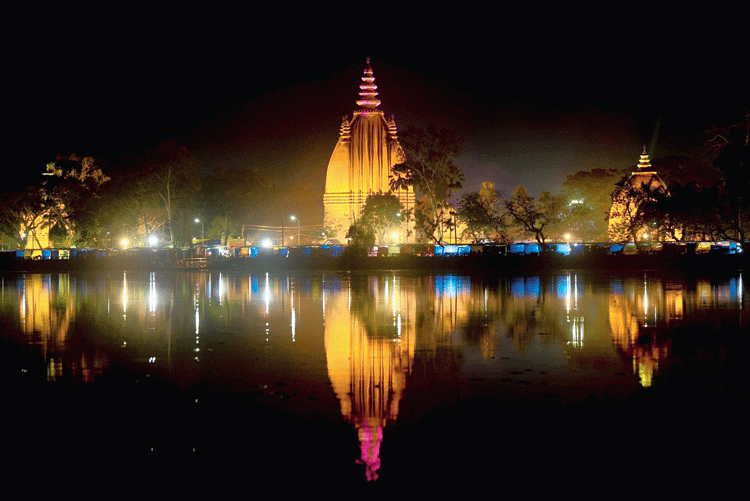Thousands of villagers and forest dwellers in Upper Assam districts of Tinsukia, Dibrugarh, Dhemaji, Jorhat, Charaideo, Lakhimpur, Majuli, Golaghat and Sivasagar offered prayers to Pashupatinath (lord of animals) or Shiva on Friday.
No incident of human-animal conflict was reported on Friday from any part of Assam as well as neighbouring Arunachal Pradesh, Nagaland and Meghalaya.
“We worshipped Pashupatinath to end human-animal conflicts that has gone up in the past few years. Snakes, wild elephants, leopards and slow loris, among others, sneak into human habitation frequently, destroy houses and damage crops,” said Bhogeswar Moran, a farmer of East Margherita village.
There are hundreds of farmers like him for whom divine blessing is the last resort to reduce animal depredation.
“It is an age-old tradition of many indigenous communities to worship Lord Pashupatinath to keep wild animals at bay. However, it seems the problem has turned worse as animals are entering human habitation for food and shelter owing to shrinking forest cover,” Bhubaneswar Moran, a farmer of Sadia village, said.
There are Shiva temples deep inside the forests in Tinsukia district, where over 50,000 devotees from Saikhowa, Sadiya, Kakopathar, Khatangpani, Doomdooma, Soraipung, Lakhipathar, East Margherita, Lekhapani, Jagun and those under Tinsukia wildlife division offer prayers since the British period.
“Deforestation, earth-cutting and expansion of human settlements and croplands have reduced natural habitat of animals, prompting them to roam around in search of food and shelter,” said wildlife activist Devajit Moran.
According to a government report, since 2010, 761 people and 249 elephants have lost their lives in human-animal conflict incidents in the state.
The entire Northeast is well-known across the world for its greenery, flora and fauna and considered one of the richest biodiversity hotspots in the world.
The day turned into a spontaneous holiday as thousands of devotees thronged to Shiva temples across the state and fairs were held. Nightlong religious programmes were also arranged at various places.
Thousands gathered at the Negheriting Shiva Temple in Upper Assam’s Golagaht district on Friday on Mahasivaratri.
The historic temple witnessed a large gathering since early morning with devotees offering prayers to Lord Shiva.
A long queue was witnessed from Negheriting Chariali to the temple, a distance of 1km.
The civil and police administration had deployed several measures to control the law-and-order situation in and around the temple.
The temple, built in 1727 during the tenure of Ahom king Rajeswar Singha, is one of the most important Shiva temples in Upper Assam.
Since its inception, Shivaratri Mela has been organised in the temple.
“We always come to the temple on this special day as we believe in Lord Shiva and his power,” Pranjal Bora of Golaghat said.
“Though the archaeology department had renovated the temple, yet plantation and other important work are yet to be completed,” another devotee Bedanta Dutta said.
“Though there is a potential of developing the temple into a tourist spot, the government seems reluctant on the issue,” said Tridip Saikia, a local youth.
Additional reporting by Sanjoy Hazarika in Bokakhat










